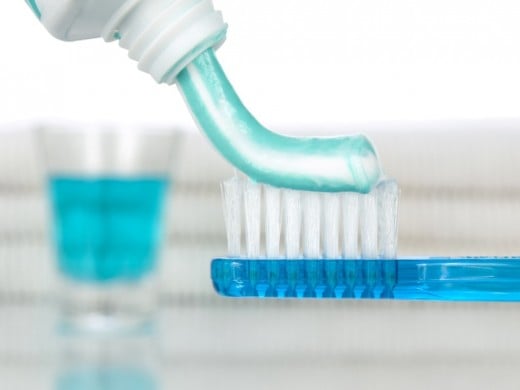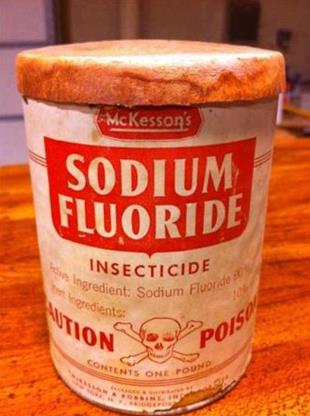Fluoride Facts: The Truth About Water Fluoridation and the Dangers of Fluoride

Is Water Fluoridation Necessary?
People don't often think too much about the water that they drink. If it comes from a fancy natural spring, or an excellent filtration system, then we just assume that it's healthy. Fluoride is present in most American water sources, and it's found in the water supplies of many other places around the globe. Even if your particular community doesn't have fluoridated water, it is present in lots of different products at your local store. After all, water in those products comes from somewhere else. So, fluoridation is really an issue that affects everyone in the United States, and also around the world. It's not just about your local water supply.
If you don't want fluoride in your water, there are ways to get rid of it. Activated alumina, reverse osmosis, and distillation filtration are the most common methods used. Lots of water machines around the world use reverse osmosis to filter their water.
You'll want to get your own water bottles to carry around your fresh water supply with. You can get water bottles for all sorts of purposes at TheWaterBottleStore.com. Head over there right away and get some bottles for your non-fluoridated water, and make sure and pick up some for your loved ones. Emerging science has begun to show that fluoride may be quite bad for us.
The Beginnings of Fluoridation
Dr. Frederick McKay is most often credited with the discovery of fluoride's effects on teeth. Dr. McKay set up a dental practice in Colorado Springs in 1901, and he quickly discovered that the local children had disgusting brown stains on their teeth. He spent a long time researching the problem, and eventually advised some locals to use a new water source. This solved the problem, and children began to show no signs of brown stains. However, the teeth of the children free from the brown stains had markedly poor quality tooth enamel. They were now much more prone to damage, cracking, chipping, and erosion.

Dr. McKay labored to discover what had caused the brown stains in the old water supply, and, with the help of chemist H. V. Churchill, he eventually discovered that high levels of fluoride had caused them. Fluoride had apparently caused structural alterations to the children's developing teeth. When their adult teeth began to grow in, those teeth apparently became stronger (and hideously brown). Thus, Dr. McKay believed that fluoride produced stronger teeth through alteration of the enamel itself.
From that point, a chain reaction was set into motion that encouraged scientists to determine a "safe" amount of fluoride for drinking water supplies. Initially, this meant reducing the naturally occurring levels of fluoride in order to stop brown stains. However, the benefits of fluoride for tooth enamel eventually caused a stir in America. Scientists then began to adjust the fluoride levels in drinking water in order to help produce stronger teeth. Today, more than 75 percent of the United States adds and adjusts the fluoride levels in water supplies in order to keep the population's teeth strong and healthy. Not everyone agrees that fluoridation is necessary or even safe.

The Effects of Fluoride - Fluoridation Facts or Conjecture?
Fluorine is an element on the periodic table. It is the most electronegative element, which means that atoms of fluorine are highly attracted to atoms and molecules that have inclinations towards positive charge. If you've ever witnessed the effects of an acid or base, then you may have some idea of what fluorine, and its negatively charged anion state called fluoride, might be capable of. We are told that small amounts of fluoride are beneficial when placed into the water supply. Heck, fluoride even occurs naturally in groundwater sources around the globe in fairly high concentrations. The primary reason for water fluoridation, especially in the United States, is for healthy, strong teeth.
Perhaps most alarming about the whole fluoride issue is that even scientists don't fully understand how it helps teeth. Dentists have been using the stuff for a long time, but this has more to do with the observable facts stemming from Dr. McKay than from solid scientific understanding. What we do know is that fluoride changes the structure of tooth enamel, which in turn makes it resistant to acidity. Scientists partially agree that fluoride helps the molecules that make up enamel enter into a more secure lattice framework on an atomic level. Due to better enamel structure, less plaque and bacteria can reside on, and within, fissures on the surface of teeth. It's also easier to brush or floss the teeth clean because of this.

You may be wondering how tiny amounts of fluoride in the water can possibly affect your teeth, since the water that we drink often doesn't even touch our teeth when we drink it. The truth is, all of the fluoridated water that you drink contributes to a steady supply within your body. Our bodies are made up of about 60 percent water. If you live in an area with fluoridated water, then that means that 60 percent of your body consists of fluoridated water. So, drinking fluoridated water literally fills your body with an ever-present supply of fluoride. It exists in your saliva, gums, and everywhere else. In other words, we are constantly applying fluoride to our teeth.
Since our bodies are filled with fluoride, shouldn't we ask, "Is fluoride bad for you?" and if so, "Why is fluoride bad?"
Quiz: Water Fluoridation Basics
view quiz statisticsVideo: The Toxic Truth About Fluoride and Its Health Dangers
Fluoridation Around the World - Some More Fluoridation Facts
It's easy for populations around the world to agree to water fluoridation for the purposes of strong teeth, but water fluoridation can have unforeseen consequences. Many developmental problems with children have sprung up since the widespread fluoridation of water, circa 1945. The growing prevalence of autism, diabetes, and Alzheimer's disease could theoretically be traced to fluoridation.
Over 75 communities in the United States and Canada have opted to stop water fluoridation since 2010. Opposition to fluoridation is strong around the world for various health reasons. Community leaders don't always consider the detrimental health effects that fluoridation is theorized to cause.

China wrestled with the notion of widespread fluoridation until dropping the idea altogether in the 1980s. Apparently, the Chinese conducted a study that contrasted communities with high levels of natural water fluoridation with communities free of water fluoridation. Hence, they discovered the dangers of fluoride through research. The results were astounding. IQ scores in areas with heavily fluoridated water were as much as 45 percent lower on average than they were in areas with no water fluoridation. According to the Chinese investigation, fluoride may be the cause of neurotoxicity in the development of children, and thus fluoride may severely hamper the development of a child's brain. It's interesting to note that this problem can easily resemble what we call "autism" today in the United States.
Citizens in many countries reject the idea of water fluoridation. Germany stopped fluoridating its water in the 1970s, and citizens of France have managed to keep their water free of the substance. Only 10 percent of the United Kingdom's population drinks fluoridated water. Brazil has adopted fluoridation with the same zeal that the United States has, but for the most part, people around the world tend to oppose fluoridation.
Get Involved - Seek Out Answers in Your Community
Do you know if your local water supply contains fluoride?
Video: The Dangers of Fluoride in Drinking Water
Carrying Your Own Water and Water Bottles Is the Answer
As mentioned previously, reverse osmosis, activated alumina filtration, and distillation filtration are the most common ways to remove fluoride from water. It's important to carry around your own de-fluoridated water.
Don't forget to pick up some new water bottles from TheWaterBottleStore.com. This way, you can carry your safe drinking water wherever you go. Kick the nasty fluoride habit forever.
The Theoretical Dangers of Fluoride - Is Fluoride Dangerous?
Many claims have been made about fluoride. Scientists are only beginning to understand the many things that it may do to a human body. So, is fluoride bad for you? Perhaps so.

Some scientists have written about how fluoride disrupts hormone balance within the human body. This has many different effects. When fluoride puts your hormones out of balance, you are open to increased lead absorption, fatigue, muscle problems, dementia, thyroid problems, general sickness, decreased fertility, and more.
Like the Chinese discovered in the 1980s, more than 100 studies have linked fluoridation to brain damage and decreased IQ. Perhaps there is a link between the fluoridation of water in the United States and the dismal status of teenage American IQ scores. Furthermore, the FDA has never approved any supplement containing "healthy levels of fluoride."
Communities with higher levels of fluoride have been shown to have increased levels of kidney disease, diabetes, nutrient deficiency, and consumption of infant formula.
Perhaps most shocking of all, a study from the World Health Organization determined that fluoridated countries have similar levels of tooth decay to non-fluoridated countries. Could it be that those "observable differences" in tooth enamel from Dr. McKay and others were just coincidences? Possibly. It may not be necessary to ask, "why is fluoride bad?" when there is no concrete evidence that it is good in the first place. The many fluoride dangers do seem to be real and supported with evidence, though.

What we do know about fluoride is that it is treated with caution in a chemical laboratory. That is one of the fluoride facts that no scientist will dispute. Fluoride dangers are even documented on every toothpaste tube that tells you to call poison control if ingested! For reasons already explained, concentrations of fluoride anions can be damaging to bodily tissues due to electronegativity. Is fluoride dangerous? Of course.
Should we really be putting this stuff into our bodies? Most developed countries around the world caution its usage for good reason.

© 2014 Luke








